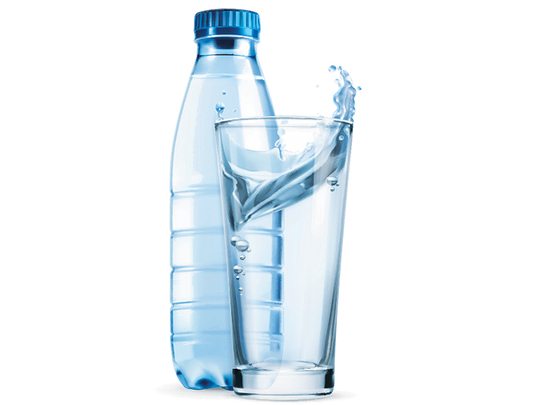
Consumers concerned with the level of microplastics in bottled drinking water have a variety of alternative choices, from water that is filtered right at the tap to packaging that is free of harmful plastics.
“The UAE has the largest consumption of plastic bottled water in the world,” Jakob Johannsen, Managing Partner at Quooker Emirates, a retailer of taps that dispense filtered boiling water at temperatures of 100°Celsius, tells GN Focus via email.
“By using the filtered tap water for cooking and drinking clients can say no to plastic bottled water,” Johannsen adds. “Having the Quooker system installed saves the hassle of buying and disposing of plastic bottles.” Quooker’s range of taps also provide chilled, warm or sparkling water.
The Dutch product is among a range of different water purification systems available in the UAE. Liquid of Life, a Dubai-based company, instals under-the-sink filtration systems for consumers and provides commercial solutions to clients across the UAE. Pure Water Products has a six-stage reverse osmosis filter that costs Dh450.
Japan’s Enagic retails Kangen Water, which electrolyses tap water to yield ionised alkaline and acidic water, which are believed to carry many different health benefits. More convenient are water filter jugs, from the German company Brita, that use activated carbon and ion-exchanged resin to remove a claimed 99 per cent of chlorine and metals such as copper and lead.
Contaminated bottles
Even unfiltered, UAE tap water is suitable for consumption, authorities say, but a lack of proper maintenance means that impurities in building tanks and improperly cleaned pipes could result in contaminated water making it to home faucets. As a result, many residents prefer bottled water.
But consumers received a rude shock when two new studies reported last week found tiny bits of plastic in a range of brands available worldwide. One analysis of 11 popular bottled water brands sold in nine different countries found that more than 90 per cent contained up to 10,000 plastic pieces for every litre of water — about twice as high as most tap water. Products tested included several brands popularly available in the UAE. A separate study, commissioned by the campaign group Story of Stuff, found similar plastic microfibres in 19 different brands sold in the US. This debris is generally made from polypropylene, nylon and polyethylene terephthalate (PET), which are often used to package water.
However, in the UAE at least, water sold in plastic bottles is safe to drink, say officials from Emirates Standardisation and Metrology Authority (Esma), the agency responsible for product standards and safety. Esma tests and monitors all plastic bottles in the country to ensure they meet stringent quality and safety standards.
The assurances come after a new study suggested that 90 per cent of the more notable global bottled water brands may contain tiny pieces of plastic.
Quality packaging counts
“As long as the polyethylene bottles are handled properly at the time of delivery, especially during the summer season, they are safe for the consumer,” Abdullah Al Maeeni, Esma Director General, told Gulf News. “PET bottles or five-gallon water containers are safe at high temperatures.”
Nevertheless, some companies underscore the distinction between the packaging materials employed, calling attention to their own, higher-quality containers. Vita Beverages is a Finnish manufacturer that retails Spring Aqua water in the UAE. Bottled at source in central Finland, the product makes the most of the fact that the Scandinavian nation’s water is ranked among the purest in the world by the UN.
Kari Laihonen, Principal Director at Vita Beverages, draws our attention to his company’s packaging, which although plastic isn’t of the same quality as other brands, he says.
“We only use high-density polyethylene (HDPE) plastic in all our Spring Aqua bottles and caps,” Laihonen says via email. “HDPE doesn’t have any microplastics.”
The effect of microplastics on humans is unknown, and tap water globally has been reported to contain these debris. In the days since the study was published, the World Health Organisation has announced a review into the potential risks of plastic in drinking water.











